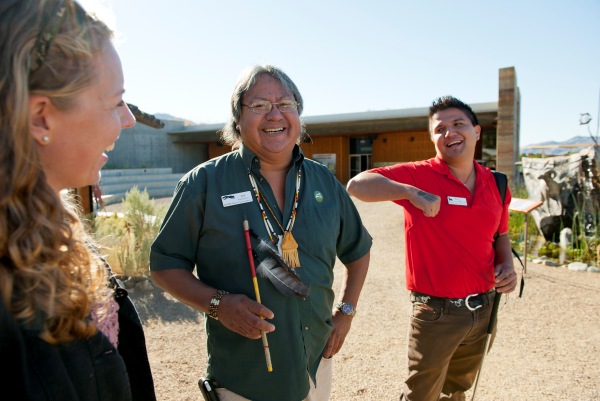Another summer tourist season has wrapped up across Canada—one of the most successful in recent memory. A strong global economy coupled with international visitors avoiding the political turmoil in the United States resulted in a boom in both international and domestic tourists exploring Canada’s plethora of sights and activities.
For most tourism employers, the ritual of recruiting staff for peak season is an annual necessity that induces stress, uncertainty, and a grudging acceptance that it is simply the cost of running a business in a seasonal industry.
Once the hiring process has been completed, most employers turn their attention to other crucial aspects of maximizing success over these key revenue-generating months. There is often little thought given to making summer staffing less of a burden the following season—that ship has sailed, and their attention and problem-solving skills are needed elsewhere.
With September’s arrival, we felt it would be timely to suggest some practices to implement now and sustain throughout the year—practices that will put you and your business in a more advantageous position for next spring’s hiring rush. These need not be onerous, but by including the necessity of hiring for the next busy season in ongoing business decisions, you can improve your ability to hire the right people and your chances of having these top performers stay more than a single season. Keeping your best staff members year after year allows you to save on recruitment and training costs and ensures you have a qualified, experienced, and committed staff.
Here are some tips to ensure the return of as many of your seasonal employees as possible, and strategies to hire new ones as necessary:
- Simply ask! Toward the end of the summer season, ask employees whether they would like to return the following year. This may seem obvious, but some may not have thought that far ahead, and may appreciate the ability to come back to a familiar job and work environment.
- Conduct exit interviews. Find out why some employees are keen to return while others are not. Some will be leaving for legitimate reasons, such as a school work placement or a move after graduation, but others may be seeking a workplace with more benefits or training. Use these results to tweak HR policies. This will not only boost seasonal retention, but make your longer-term employees more committed as well.
- Keep in touch. A quick message to say hello, a holiday greeting, or an invitation to a staff party will keep your operation top-of-mind when seasonal employees start thinking about summer plans. Consider creating a social networking group where current and former employees can chat with each other and you. Also encourage seasonal staff to swing by for a meal or visit when they are in town—extending a staff discount on your products or services or treating them to a freebie is a great gesture…and could even encourage new business if they bring along family or friends.
- Offer extra incentives to returning employees. Whether it’s a higher wage, a promotion, non-monetary bonuses, or training for a supervisory role, they will feel encouraged to come back. Make sure the incentives build with each year an employee returns.
- Be a choice employer. Providing a fun, flexible, and positive workplace will have seasonal staff looking forward to returning the following year. Make such issues as work-life balance, training, teamwork, and communication a priority. You’ll earn a reputation as a place people want to work, resulting not only in repeat seasonal employees but also in other qualified workers hoping to gain a position with you.
- Make connections. If your top seasonal employees are not returning for reasons unrelated to the job, ask if they have family members or friends who would be interested in coming on board. If they genuinely enjoyed their time working for you, they will not hesitate to recommend hard-working individuals to take over the role they are leaving.
- Expand your focus. If you tend to recruit students, consider alternate labour pools. Retired individuals may be looking for new experiences and extra income; their maturity and varied work history can bring an added dimension to your team. Newcomers to Canada are often looking for that first foot in the door to gain relevant Canadian workplace experience. They may seek seasonal experience regardless of their long-term employment plans, because it can be a good bridge to learn more about Canadian culture, norms, attitudes, and business practices. A growing number of Indigenous youth are looking to enter the workforce and gain experience in tourism—build relationships with the local Indigenous community to connect with them. These alternate labour pools often require employers to look at different recruitment, onboarding, and retention policies—look for tips in upcoming editions of HR Insider.

